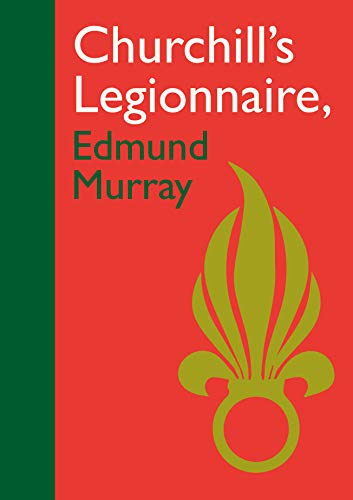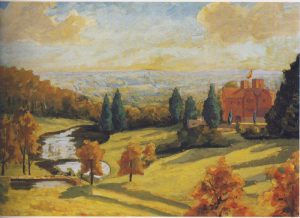
Finest Hour 194
Books, Arts, & Curiosities – Man at Arms

July 19, 2022
Finest Hour 194, Fourth Quarter 2021
Page 49
Review by Richard Toye
Richard Toye is Professor of History at the University of Exeter.
Edmund Murray, Churchill’s Legionnaire, Unicorn Publishing, 2021, 160 pages, £14.99.
ISBN 978–1913491253
Edmund Murray is best known as Winston Churchill’s last bodyguard, serving from 1950 until the death of his illustrious charge in 1965. He published his memoirs of that period, I Was Churchill’s Bodyguard, in 1987. (The paperback edition is simply called Churchill’s Bodyguard.) David Freeman, editor of Finest Hour, recalled to me in an email: “Murray was actively involved with the International Churchill Society during his later years, and I got to meet him about thirty years ago when he did a talk in San Francisco. He was quite a character, the only person I have ever met that actually wore a monocle. He was undoubtedly intoxicated while delivering a speech that he had given many times before. All this made the event quite entertaining.”
That certainly gives a flavour of Murray’s personality, as revealed through this new memoir. Covering the years 1937 to 1945, it is based on a text discovered after the author’s death, and now edited for publication by his son Bill. Purchasers should be aware that there is very little mention of Churchill; Murray did not meet him until later. It is a slight cause for regret that there is no editorial note, outlining the nature of the manuscript and the principles that were used in readying it for the eyes of readers. No matter: this is a lively and highly entertaining account of an extraordinary career in the French Foreign Legion.

2025 International Churchill Conference
By most people’s standards, it was a crazy decision to throw up a steady job in London in favour of a long stint in one of the world’s notorious fighting units. The Legion had a reputation for brutality: Murray lists a series of extremely unpleasant punishments for soldiers who stepped out of line. He, however, managed to avoid getting into trouble. His excellent command of French surely helped, but he appears to have been genuinely efficient and committed all round.
Basic training in Algeria was followed by service in Morocco. When the Second World War broke out, Murray was eager to break free and join the British forces, but his efforts came to nothing. In 1941 he was posted to the Far East. The most dramatic part of the book comes close to the war’s end, when Japanese troops forced a retreat from Vietnam towards China. Murray recalls the horror of the hand-to-hand fighting: “It was horrendous and for many years after I used to wake up in the night hearing the out-of-this-world screams of the Nippons as they attacked, together with the awful cries of our own wounded and dying.” Once he had crossed the border, he succeeded in leaving the Legion and getting a job in British Intelligence.
It would be easy to take this book simply at face value and to read it as a kind of Boy’s Own adventure. It contains, however, a number of clues or reminders that the Legion was in service of a colonial regime that was engaged not only in repressive physical violence but in systematic sexual exploitation. Murray seems to have reflected little on this. Nevertheless, his occasional throwaway comments make this a potentially useful source for historians of French imperialism. Readers will enjoy the derring-do, but they should also read between the lines.
Subscribe
WANT MORE?
Get the Churchill Bulletin delivered to your inbox once a month.




